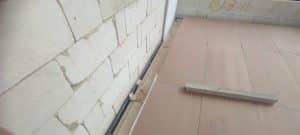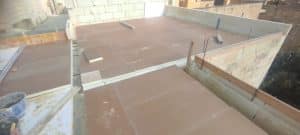If you’re considering a renovation or new build in Malta, you’ve probably asked yourself one big question: is microcement cheaper than tiling?
The answer isn’t as black and white as you might think. While microcement may cost slightly more upfront in some cases, it offers long-term value, style, and performance that tiling often struggles to match. When you factor in the sleek aesthetic, easy maintenance, and fast application process, microcement starts looking like the smarter choice.
In this post, we’ll dive into everything you need to know to make an informed decision—from pricing to performance to overall finish. We’ll even show you where to get expert microcement services and products right here in Malta.
1. Comparing Costs: Is Microcement Really Cheaper Than Tiling? | Is Microcement Cheaper Than Tiling
Let’s address the big question head-on: is microcement cheaper than tiling? The short answer is—not quite. Microcement usually has a slightly higher price per square metre compared to standard ceramic or porcelain tiles. However, the comparison isn’t that simple.
Average Costs in Malta:
Microcement: starts at around €65 to €100 per m², including materials and labour
Standard tiles: range from €30 to €70 per m², depending on material quality
Premium tiles (e.g., marble, large format): can cost €80 to €150+ per m²
But here’s the twist: while tiling may seem cheaper on paper, the total cost can increase quickly when you factor in:
Tile demolition (if replacing existing surfaces)
Grouting and spacers
Waste materials
Longer labour time
Joint maintenance
Microcement, on the other hand, is applied directly over existing surfaces—including tiles—which saves time and money on demolition and disposal.
So, is microcement cheaper than tiling? Technically, it might be a little more expensive initially, but when you look at the bigger picture—including installation, maintenance, and design finish—it’s often the better value.
2. Time is Money: Microcement’s Quick Installation Wins Points | Is Microcement Cheaper Than Tiling
In the world of renovation and construction, time equals cost. Installing microcement is significantly faster than tiling, especially if you’re covering existing surfaces.
Typical Timelines:
Tiling: 3–6 days for surface prep, tile placement, grouting, and drying
Microcement: 2–4 days from start to finish
Since microcement is a thin, multi-layer application (around 2–3mm thick), it skips many of the tedious steps required with tiles. There’s no need for:
Removing old tiles
Levelling uneven surfaces with screed
Cutting or spacing tiles
Waiting on grout to set
This time-saving factor not only reduces labour costs but also gets your space back in use much faster—a big plus for homeowners and business owners alike.
3. Seamless Design and Superior Finish | Is Microcement Cheaper Than Tiling
Ask any architect or designer in Malta, and they’ll agree: microcement offers a visually seamless, high-end finish that tiling simply can’t match.
Tiles, no matter how well installed, always include:
Grout lines, which can stain and crack over time
Repetition, unless you invest in custom or large-format designs
Material variation, especially in natural stone
Microcement, however, delivers a continuous, joint-free surface that works beautifully across:
Floors
Walls
Ceilings
Bathrooms and wet areas
Kitchen countertops
Staircases
It’s not just about appearance—it’s also practical. Fewer joints mean fewer places for dirt and moisture to settle, making cleaning a breeze.
So while people often ask is microcement cheaper than tiling, they’re usually overlooking the unmatched finish that microcement provides. You’re not just paying for coverage—you’re paying for a design statement.
4. Durability and Maintenance: A Long-Term Investment | Is Microcement Cheaper Than Tiling
When evaluating cost, it’s important to consider not just what you pay now—but what you’ll spend later on upkeep, cleaning, and potential repairs.
Tiles:
Grout needs regular scrubbing and can discolour quickly
Tiles can crack under impact or with foundation movement
Replacement tiles may not match older batches
Microcement:
Durable and flexible, meaning fewer cracks
Water-resistant when sealed properly
Requires no grout—just a wipe-down with soap and water
Can be refinished or resealed if needed (no full redo required)
So, even if microcement starts off slightly more expensive, the reduced maintenance costs often make it cheaper in the long run.
Plus, Kibitec offers a special microcement cleaning product that enhances longevity and finish quality. If you’d like to buy this or get our professional maintenance service in Malta, contact us here.
5. When Microcement Makes More Sense Than Tiles | Is Microcement Cheaper Than Tiling
There are specific cases where microcement truly shines as the clear winner, even if it’s not dramatically cheaper.
Small Spaces or Complex Areas
In tight bathrooms, curved walls, or staircases, cutting and fitting tiles can be a logistical nightmare. Microcement, being hand-applied, adapts to any shape and space. It creates a unified surface without awkward seams or cuts.
Renovation Projects
One of microcement’s biggest selling points is its ability to be applied over:
Ceramic tiles
Marble
Concrete
Plaster
That means no need for demolition, which saves on both time and disposal costs. You also avoid delays related to prepping or curing.
Modern, Minimalist Designs
If you’re after a contemporary, industrial, or minimalist look, microcement delivers the aesthetic flawlessly. Tiles, by contrast, can look busy or dated unless you spend big on designer patterns.
Want Microcement in Your Home or Business? Contact Us | Is Microcement Cheaper Than Tiling
At Kibitec, we help Malta-based clients choose the best solution for their spaces. Whether you’re building from scratch or upgrading an old bathroom, we can help you assess whether tiles or microcement is the better option based on your goals, budget, and timeline.
Looking for expert advice, a quote, or to buy our trusted microcement cleaning products?
👉 Reach out to us today at https://kibitec.com/contact-us/
We’d love to guide you through the process and deliver an incredible result that lasts.
FAQs: Your Microcement vs. Tiling Questions Answered | Is Microcement Cheaper Than Tiling
Q1: Is microcement waterproof like tiles?
Yes, microcement is fully waterproof when sealed correctly. It’s ideal for wet areas like bathrooms, showers, and even outdoor surfaces. Unlike tiles, there are no grout lines that absorb moisture, making microcement easier to clean and more hygienic in the long run.
Q2: Can I apply microcement over my existing tiles?
Absolutely. That’s one of microcement’s biggest advantages. It can be applied directly over old tiles, concrete, or plaster—eliminating the need for costly demolition. This alone can save hundreds of euros in labour and waste disposal.
Q3: Is microcement slippery?
When sealed properly with a matte or satin finish, microcement provides excellent slip resistance, even in wet environments. You can also request an anti-slip treatment if you’re using it in areas like pool decks or outdoor terraces.
Q4: How long does microcement last compared to tiling?
With the right installation and care, microcement can last 10 to 20 years or more, comparable to high-end tiles. It’s also easier to maintain and refresh over time without needing to replace entire sections.
Common Misconceptions About Microcement and Tiling | Is Microcement Cheaper Than Tiling
Let’s clear up a few myths that may be skewing your decision-making process.
Myth 1: Tiling is always cheaper.
Not necessarily. Tiling comes with hidden costs—demolition, waste disposal, and long installation times. Add that to future grout maintenance and tile repairs, and it can end up costing more than microcement over time.
Myth 2: Microcement cracks easily.
When properly installed, microcement is highly resistant to cracking. It’s flexible and adapts to minor surface movements, unlike brittle tiles. Any surface can crack under extreme conditions, but with good installation and a quality sealant, microcement holds up impressively well.
Myth 3: It’s hard to repair microcement.
It’s actually easier to repair or refresh microcement than it is to replace cracked or chipped tiles. Minor scratches or dull areas can be touched up or resealed without redoing the entire surface.
Tiling vs. Microcement: Price Comparison Table | Is Microcement Cheaper Than Tiling
| Feature | Microcement (€65–€100/m²) | Standard Tiling (€30–€70/m²) |
|---|---|---|
| Material Cost | €40–€70/m² | €20–€50/m² |
| Labour Cost | €25–€30/m² | €10–€20/m² |
| Demolition Required | No | Often yes |
| Installation Time | 2–4 days | 3–6 days |
| Finish | Seamless, modern | Grouted, varied |
| Maintenance | Low | Medium to High |
| Customisation | High (textures, colours) | Medium |
| Long-Term Value | High | Medium |
💡 Takeaway: While the price per square metre for microcement may be slightly higher, the reduced prep work, modern look, and minimal maintenance often make it the better investment—especially in Malta’s fast-evolving property market.
DIY vs. Professional Application: What’s Right for You?
DIY Tiling: Feasible but Time-Consuming
Tiling can be DIY’d with some skill and patience. However, cutting tiles, measuring spaces, mixing adhesives, and applying grout can be very labour-intensive. And if something goes wrong, it’s not cheap to fix.
DIY Microcement: Not Recommended
Microcement application is more of an art than a task. It requires:
Several layers applied with specific timing
Controlled humidity and drying conditions
Expert sealing to ensure durability and water resistance
Unless you’re trained, it’s better to hire a professional. At Kibitec, we offer professional microcement application services across Malta—with guaranteed results, quick turnaround, and zero demolition needed.
Microcement in Malta: Why It’s Gaining Popularity
Malta’s property market is evolving quickly. Homeowners and developers are looking for modern solutions that not only look stunning but are also practical in the Mediterranean climate.
Here’s why microcement is becoming a go-to option:
Perfect for humid environments: Bathrooms, kitchens, and wet rooms thrive with microcement.
Ideal for small spaces: No grout lines = a bigger, cleaner visual appearance.
Quick renovations: Need a new look in just a few days? Microcement is the answer.
Modern aesthetic: Its clean, industrial feel suits everything from heritage townhouses to new-build penthouses in Sliema.
So the next time you wonder is microcement cheaper than tiling, think beyond cost per square metre—consider overall value, durability, speed, and aesthetic quality.
Final Verdict: Is Microcement Cheaper Than Tiling?
Technically, the price per metre may be a little higher. But in real-world scenarios—especially in Malta—microcement often wins on overall value.
It’s ideal if you’re looking for:
Fewer installation delays
No demolition work
Easier cleaning and maintenance
High-end, seamless style
A surface that lasts with minimal fuss
If you’re on a tight budget and going for basic tile options, tiling may save you some money up front. But if you’re aiming for effortless elegance and smart long-term investment, microcement is the smarter choice.
Let’s Talk Microcement – Contact Kibitec Today
Ready to upgrade your floors, walls, or bathroom surfaces? Wondering whether microcement is right for your home or business?
We can help.
At Kibitec, we offer premium microcement supply and installation services tailored for Malta’s unique climate and style preferences. Whether you’re just starting to explore or are ready to book your project, we’re happy to provide guidance, pricing, and product options.
👉 Get in touch with us today at https://kibitec.com/contact-us/
We’ll help you compare options, avoid hidden costs, and achieve a finish you’ll love for years to come.




